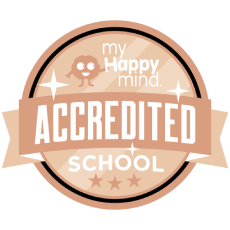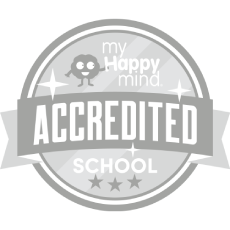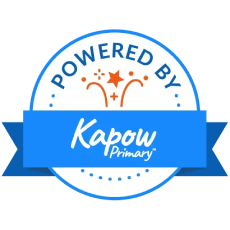Curriculum
.jpg)

PLEASE SCROLL BELOW OUR FULL CURRICULUM DOCUMENTATION
OUR CURRICULUM INTENT AND CHRISTIAN VISION
By embedding our Christian Vision We believe that through the teaching of God’s word at St Mary Magdalen's Church of England Primary School, we prepare our children for all challenges that lie before them, enabling all our school family to, ‘live and live splendidly’ John 10:10 ‘By reaching our potential together in Christ.’ Through exploring creating, and thinking critically we intend to build on prior learning and enable them to link the past, the present and the future in a range of local and global contexts. This is to deepen their understanding and enhance their skills in all curriculum areas. By providing a rich soil, enabling our children to flourish socially, morally, and spiritually in a safe environment. We do this by being prayerful and accepting of God's word, following our Christian values where love is central to all we do Galatians 5:22-23 It is our vision to inspire our children by creating a love of learning throughout our unique curriculum by implementing relevant and meaningful experiences to make learning engaging and exciting.
We worship by celebrating our uniqueness in the acceptance and respect all our differences whilst remembering our faith’s diversities and spirituality. John 13:34. Therefore providing teaching and learning opportunities that will be pertinent to our children in order to facilitate their social mobility and equip them to be responsible, respectful, active citizens, who contribute positively to society.
HOW WE WILL CONTINUE TO DEVELOP OUR CURRICULUM
- Ensure we continue to develop a curriculum that offers flexibility through a broad range of subjects at all key stages.
- Link all our policies and action plans to our developing curriculum.
- Create a clear curriculum plan that outlines the aims of the curriculum and its links to the SDP and the school’s overall curriculum intent.
- Maintain a thorough and up-to-date knowledge of the national curriculum and ensure any developments are reflected in the school’s policies.
- All work to embed the school’s curriculum intent and implementation methods securely and consistently across the school.
- Ensure work given to pupils matches the aims of the curriculum and is coherently planned and sequenced towards cumulatively sufficient knowledge and skills for future learning and employment.
- Plan curriculum content that successfully builds on the knowledge and skills taught at each key stage.
- Ensure the curriculum contains content that has been identified as the most useful and that this content is taught in a logical progression, systematically and explicitly enough for all pupils to acquire the intended knowledge and skills.
- Work as a team with the guidance of the SLT to promote the use of a broad range of appropriate teaching and learning strategies.
- Continue to construct a curriculum that is ambitious and designed to provide all pupils with the knowledge and cultural capital they need to succeed in later life.
- Ensure the curriculum offers academic/vocational/technical ambition for all pupils, and is not narrowed for disadvantaged pupils or those with SEND.
- Adapt the curriculum, where necessary, to ensure it meets the needs of all pupils and develops their knowledge, skills and abilities, including pupils with SEND.
- Ensure the school’s local context is reflected in the curriculum.
- Take account of staff workload when planning the curriculum, schemes of work, marking and feedback and communication policies.
- Develop a positive attitude that motivates and inspires all members of staff, enabling them to carry out their duties to the highest standards.
- Ensure all subject leaders are aware of any developments in the curriculum and monitor changes as they are implemented.
- Ensure parents understand the curriculum development.
- Organise relevant PD to support staff
- Ensure new subject leaders are supported and appropriately trained..
- Continue to monitor the impact of the curriculum, plan and identify areas for improvement.
LIFE EXPERIENCES
By the End of Oak Class – Year 6 Children will have encountered these life experiences
- Been to a picnic
- Eaten in a café or restaurant
- Been to forest school
- Visited a theatre
- Experienced a visit out of their comfort zone, for example skiing
- Visited a church and a cathedral
- Visited a farm and a zoo
- Ride a horse or a pony
- Been to a museum / art gallery
- Learn by making mistakes
- Experienced an outdoor adventure, (build a fire, toast marshmallows, canoeing, rock climbing and climb a hill , erect a tent, build a den).
- Experienced a national or large scale sporting event
- Visited and joined a library
- Opportunity to represent school;
- Planned and been out on a bus or train trip
- Visited a city
- Visited an airport
- Visited a municipal building
- Experienced different places of worship
- Paddled in the sea and built a sandcastle
- Play in a park
- Experienced pond dipping
- Pay in a shop with real money
- Visit a castle/stately home/ mill
- Bake a cake
- Be able to play at least two board games
- Celebrating diversity
- Opportunity to go on a residential
By the end of each year of Sapling Class
- Know my birthday month
- Get changed for PE
- Know who a safe adult is
- Know how to brush teeth, brush hair, bathe/shower
- Use scissors correctly
- Be able to ride a trike
- Be able to read and write their own full name
- Have a conversation
- Know their address
- Put their own coat on and zip it up.
By the end of each year of Elm Class
- Say where they live
- Know their own birthday
- To know where to go or who to call when they feel threatened and vulnerable
- To understand when actions and words from adults including strangers and online are inappropriate
- Know that they need to wash, brush their teeth, comb their hair and eat healthily
- Feel confident to try things on their own
- Be proud of them themselves and their work
- Know who the King and Prime Minister is
- Know what the capital city of England is
- Dress independently including fastening their own coat.
- To recite at least two nursery rhymes.
By the end of each year of Ash Class
- Be able to dress themselves including fastening their own coats
- Be able to put a bobble in their own hair
- Be able to organize themselves by remembering what to bring to school, where to get pens etc.
- Know by heart a emergency number of their carer
- Know how to contact the emergency services.
- Be able to use a knife, fork and spoon appropriately
- Know that they need to wash, brush their teeth, comb their hair and eat healthily
- To know where to go or who to call when they feel threatened and vulnerable
- To understand when actions and words from adults including strangers and online are inappropriate
- Feel confident to try things on their own
- Be proud of them themselves and their work
- To understand that taking turns in actions and in conversation is important
- Know two mainland capital cities
- Know that we have a parliament that makes laws and where it is based.
- Know who the King is and have an idea of the royal family tree.
- Know who the Prime Minister is.
- Understand and respect their own and others personal space
- Know their date of birth
- Undertake their own healthcare
- To recite at least three nursery rhymes.
- To be able to play at least one board game and one card game.
By the end of each year of Chestnut Class
- Be able to tie their own shoe laces
- Be able to organize themselves by remembering what to bring to school, where to get pens etc.
- Know by heart a emergency number of their carer
- Know how to contact the emergency services.
- Be able to use a knife, fork and spoon appropriately
- Know that they need to wash, brush their teeth, comb their hair and eat healthily
- To know where to go or who to call when they feel threatened and vulnerable
- To understand when actions and words from adults including strangers and online are inappropriate
- Feel confident to try things on their own
- Be proud of them themselves and their work
- To understand that taking turns in actions and in conversation is important
- Be able to use a ruler to actually measure
- Know four capital cities
- To be able to play at least two board games and two card games.
- Know who the King and the royal role and have an idea of the royal family tree.
- Be able to make themselves food when they are hungry
By the end of each year of Sycamore Class
- Be able to organize themselves by remembering what to bring to school, where to get pens etc.
- Know by heart a emergency number of their carer
- Know how to contact the emergency services. and what to say when they do
- Be able to use a knife, fork and spoon appropriately
- Know that they need to wash, brush their teeth, comb their hair and eat healthily
- To know where to go or who to call when they feel threatened and vulnerable
- To understand when actions and words from adults including strangers and online are inappropriate
- Feel confident to try things on their own
- Be proud of them themselves and their work
- To understand that taking turns in actions and in conversation is important
- Be able to cross a road safely
- To ride a two wheel bike
- Know how much sleep they and be able to set and use an alarm
- Understand personal body space
- Be able to tie their own shoe laces
- Be able to play a board game
- Know what a continent is
- Be able to use a ruler and tape measure to actually measure
- To be able to tell the time from analogue and digital devices
- Understand that they must own their words and actions
- Know how to stay safe around water and
- To be able to play at least three board games and three card games.
By the end of each year of Beech Class
- Be able to organize themselves by remembering what to bring to school, where to get pens etc.
- Know by heart a emergency number of their carer
- Know how to contact the correct emergency services and what to say
- Be able to use a knife, fork and spoon appropriately
- Know that they need to wash, brush their teeth, comb their hair and eat healthily
- To know where to go or who to call when they feel threatened and vulnerable
- To understand when actions and words from adults including strangers and online are inappropriate
- Feel confident to try things on their own
- Be proud of them themselves and their work
- To understand that taking turns in actions and in conversation is important
- Be able to cross a road safely
- To be able to tell the time from analogue and digital devices
- Be able to see to all their own hygiene needs but understand they may need to ask for support
- Be able to use a ruler and tape measure to actually measure
- Know how much sleep they and be able to set and use an alarm
- Can name most of the continents
- Be able to tie their own shoe laces
By the end of each year of Oak Class
- Be able to tie shoelaces
- Be able to organize themselves by remembering what to bring to school, where to get pens etc.
- Know by heart a emergency number of their carer
- Know how to contact the emergency services.
- Be able to use a knife, fork and spoon appropriately
- Know that they need to wash, brush their teeth, comb their hair and eat healthily
- To know where to go or who to call when they feel threatened and vulnerable
- Be able to swim
- To understand when actions and words from adults including strangers and online are inappropriate
- Feel confident to try things on their own
- Be proud of them themselves and their work
- Be able to cross a road safely
- Be able to make a sandwich
- Be able to read a timetable and use it to get to their desired destination
- Be able to fasten a tie
- Be able to button up a standard shirt
- Be able to see to all their own hygiene needs but understand they may need to ask for support
- To understand that taking turns in actions and in conversation is important
- Know how much sleep they and be able to set and use an alarm
- Can name all of the continents and show where they are on a globe.
- Be able to solve their own conflicts before involving adults.
- Be able to understand, respect, celebrate and appreciate each other’s differences.














